Alesha MacPhail murder: Boy, 16, found guilty
- Published
Alesha MacPhail murder: Teenager found guilty
A 16-year-old boy has been found guilty of the abduction, rape and murder of six-year-old Alesha MacPhail.
Her naked body was found on the Isle of Bute after she was reported missing on the morning of 2 July last year.
Alesha had suffered 117 injuries and died from significant pressure being applied to her face and neck.
The teenager - who cannot be named because he is under 18 - was found guilty after a nine-day trial at the High Court in Glasgow.
Judge Lord Matthews told the killer he had stolen Alesha's life by "committing some of the most wicked and evil crimes this court has ever heard of in decades of dealing with depravity".
He said he had "no idea" why the teenager carried out the murder, and described the evidence in the case as "overwhelming".
The jury took three hours to return its unanimous verdict. The boy showed no emotion as it was read out in court.
In a witness impact statement, Alesha's mother Georgina Lochrane said her world had been ripped from her.
She added that she "had nightmares" about what happened to her daughter.
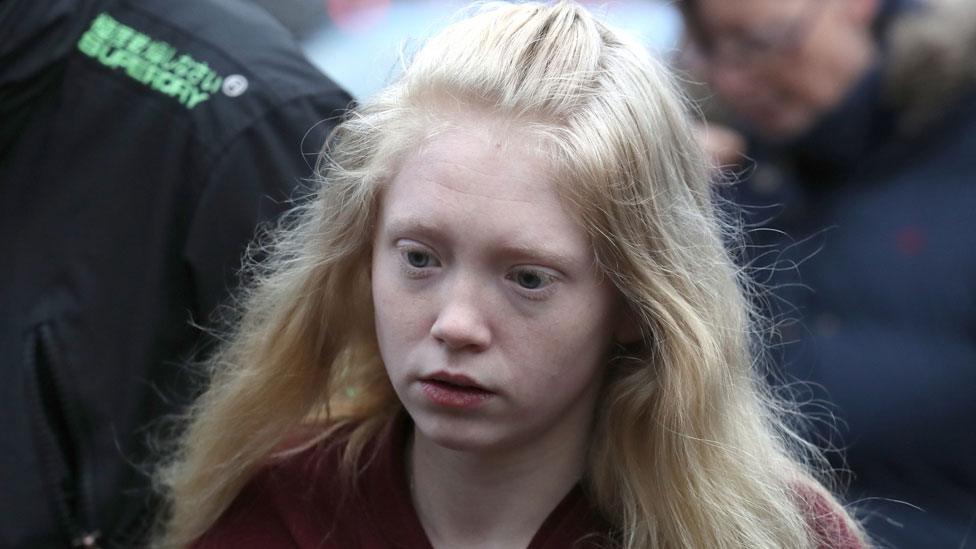
Alesha's mother Georgina Lochrane said her world had been ripped from her
In a statement released after the verdict, Ms Lochrane, said: "Words cannot express just how devastated I am to have lost my beautiful, happy, smiley wee girl.
"I am glad that the boy who did this has finally been brought to justice and that he will not be able to inflict the pain on another family that he has done to mine.
"Alesha, I love you so much, my wee pal. I will miss you forever."
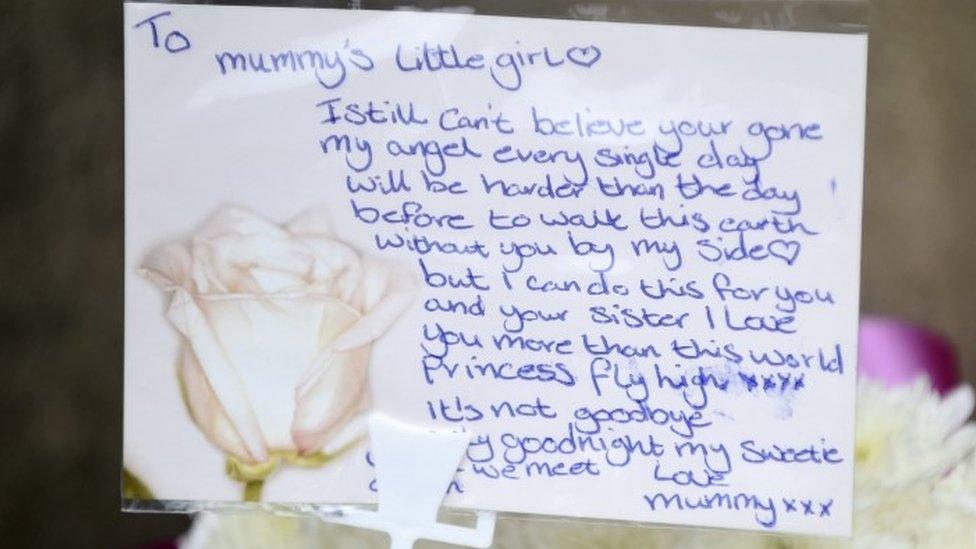
Alesha's mother wrote a message which read: "I love you more than this world"
Alesha's father Robert MacPhail said day-to-day life was "almost impossible".
Prosecutor Iain McSporran QC, told the court the loss of a child would be hard to bear in any circumstance, but the "bestial manner" in which Alesha was murdered was "simply unfathomable".
The boy, who faces detention without limit of time, will be sentenced on 21 March.
The senior investigating officer on the case, Det Supt Stuart Houston, spoke outside the court.
He said: "Alesha's senseless and barbaric murder shocked the small community on Bute and people across Scotland. The effects of her death are still being felt today."
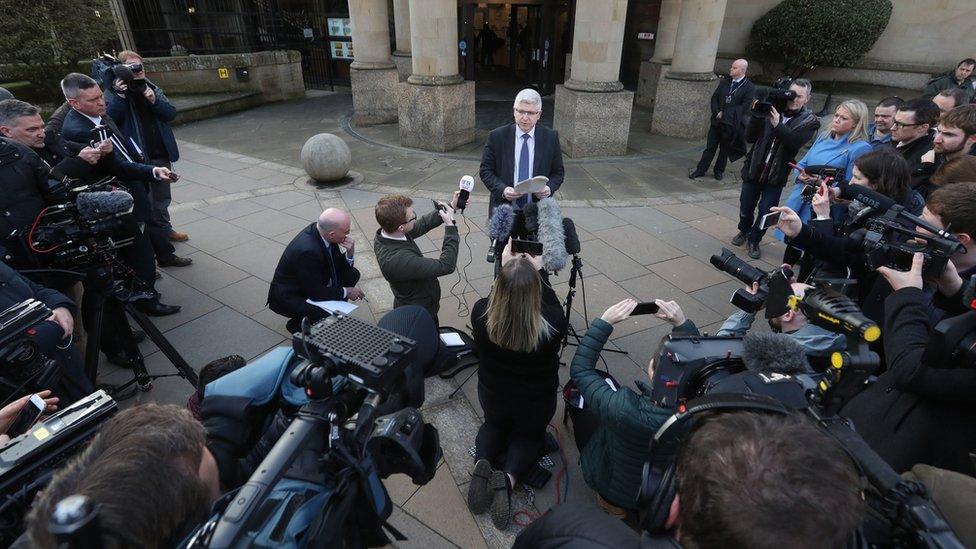
Det Supt Stuart Houston said the investigation had been "challenging" for police officers
He added: "Investigating any murder is challenging for all the police officers and staff involved. To be faced with the death of a little girl in such a cold and cruel way was extremely difficult for everyone.
"Crimes such as this are extremely rare and I am glad that we have been able to get justice for Alesha and her family."
Alesha was just days into a three-week holiday on Bute when she was taken from her grandparents' home on Ardbeg Road, Rothesay.
Alerted detectives
Her grandparents, father and his girlfriend, who were sleeping in the flat, did not hear her being lifted from her bed.
A major search was launched when the family woke to find that Alesha was missing.
The six-year-old's body was found in the grounds of a former hotel on the island.
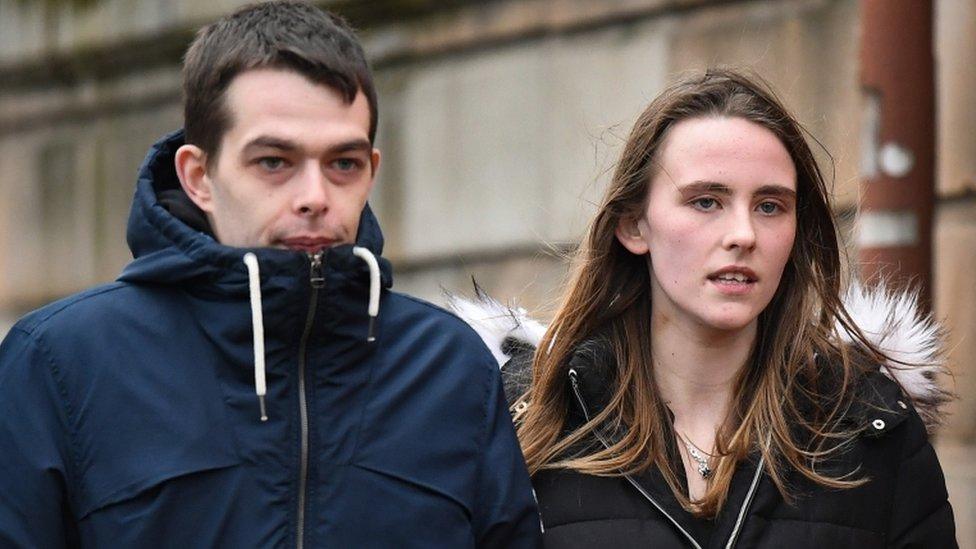
Alesha's father Robert MacPhail and his girlfriend Toni McLachlan gave evidence in the trial
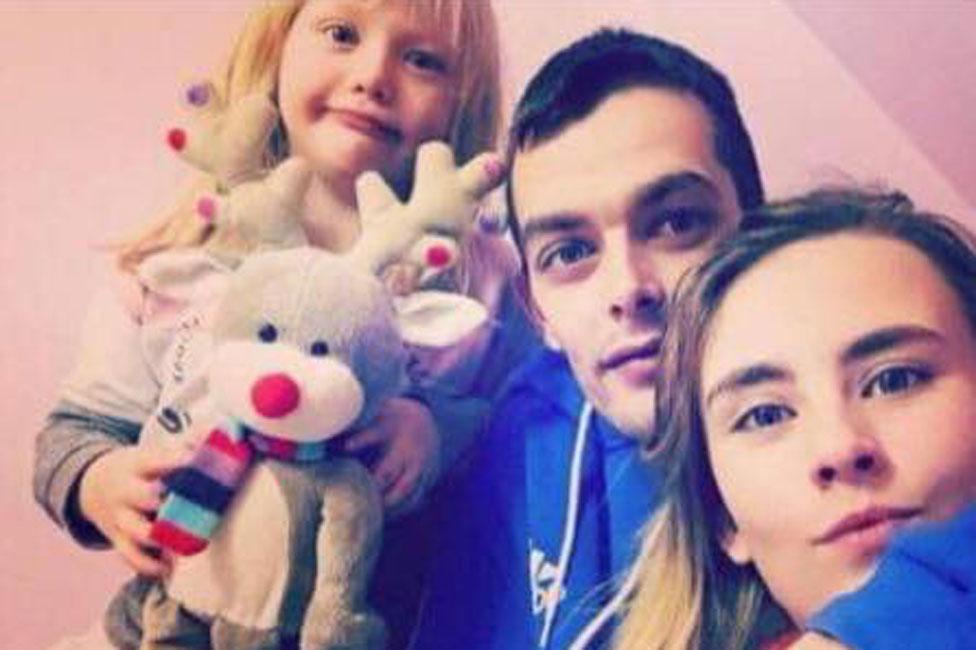
Robert MacPhail and his girlfriend Toni McLachlan with Alesha, aged six

The killer's own mother later alerted detectives after reviewing footage from two CCTV cameras outside the family home, which showed him coming and going three times between 01:54 and 04:07.
Separate footage from two houses on Marine Place captured an eerie figure walking along the shoreline around 02:25.
The individual appeared to be carrying something in front of them.
A pathologist told the jury Alesha, who lived in Airdrie, North Lanarkshire, had no marks on her feet.
This means she was carried to her death, a journey police estimate would have taken up to 17 minutes.
Drug debt
DNA evidence linking the accused to the scene was also recovered on Alesha's body and on the clothes she had worn to bed.
A forensic expert told the court the chances of the samples belonging to anyone other than the 16-year-old were more than one in a billion.
The jury heard the teenager previously bought cannabis from Alesha's father, Robert MacPhail, but the pair fell out five months before her death over an unpaid £10 drug debt.
At the start of the trial the accused lodged a special defence of incrimination blaming Mr MacPhail's girlfriend, Toni McLachlan, for the murder.
The 18-year-old, who was the last person in the flat to see Alesha alive, denied having anything to do with the crime.

Why is the BBC not naming the accused?
It is illegal in Scotland to publish the name, address, school or any other information which could identify anyone under the age of 18 who is the accused, victim or witness in a criminal case
This law applies to social media as well as to websites, newspapers and TV and radio programmes.
Any violation is considered a serious contempt of court and could result in a fine or jail term.
However, the name of victims who have died can be published - so the BBC and other outlets are able to identify Alesha MacPhail.